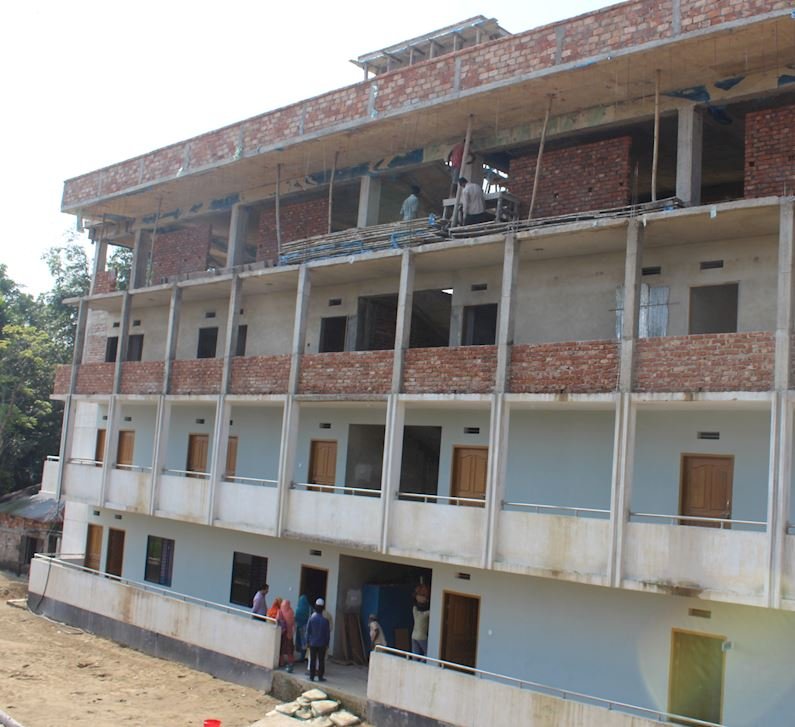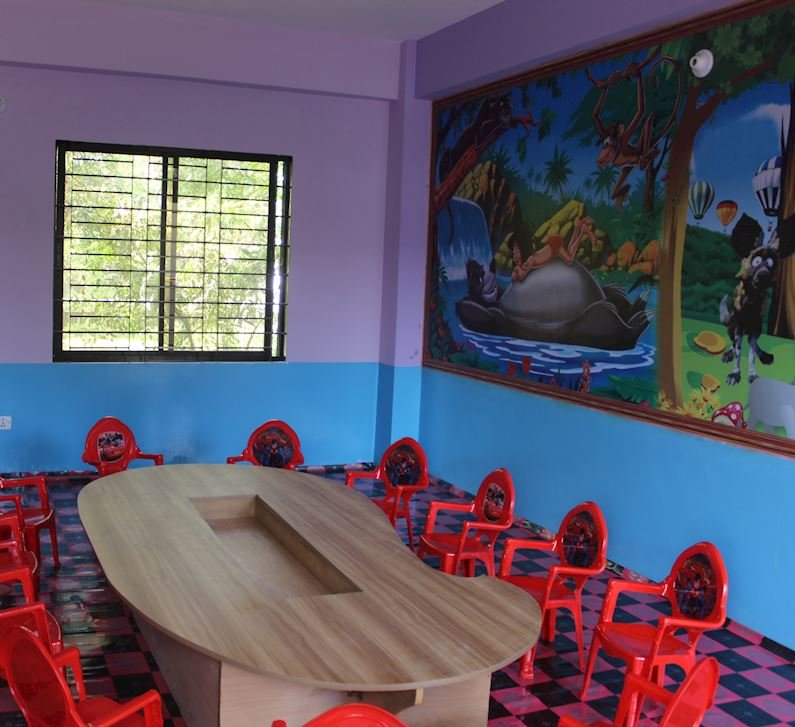WHAT WE DO IN BANGLADESH
![]() Education
Education
![]() WASH
WASH
![]() Emergency Response
Emergency Response
![]() Livelihoods
Livelihoods
![]() Health
Health
Bangladesh
Country Situation: Despite Bangladesh’s commendable efforts to develop, poverty remains an issue in the country and there are still immense unmet needs in its population in the areas of education, WASH, Health and livelihoods. Its population is one of the largest and densest in the world and is very vulnerable to climate change and natural disasters like floods. Recently, the country has recently faced influx of Rohingya refugees from neighbouring Myanmar.
Muslim Hands was established in Bangladesh in 1995 registered with the Bureau of NGO Affairs, Bangladesh. It has its head office in Dhaka and 3 suboffices around the country. It has 15 core staff and 52 staff working on its various projects around the country. On average, its annual turnover for the past 3 years is above 174m BDT per year (1.5m USD per year). Its current activities as of 2022 encompass 51,302 beneficiaries whereas over the past 5 years it has benefited 300,000 people, including Rohingya refugees from Myanmar.
Its thematic areas of activities across its 25 years of operation include education, health, livelihood, child protection, gender, WASH, shelter & infrastructure, emergency food and NFI distribution.
Education
Muslim Hands Bangladesh has various education projects in Bangladesh which range from setting up large school complexes in under-served communities which accommodate thousands of students, especially the most vulnerable (orphans) in primary and secondary education. MHB also takes special care of inclusion and provides braille reading classes for children with disabilities. Over its decades of working in education, MHB has repeatedly partnered with government structures to implement student enrolment programs, infrastructural development of schools, and teacher training programs. And now, MHB is even piloting the implementation of online teaching facilities in schools and explore providing these facilities to children outside the MH schools. MHB aims to provide career counciling, vocational training, and mentoring facilities to children at its schools.
As of right now, MHI is running 2 Schools of Excellence and 1 Model School. These schools are built not only with access to education, but quality and standards of education in mind. They are equipped with computers for IT learning, hygienic learning environments, and qualified teachers to prepare the greatest possible success in public examinations and give pupils maximum flexibility of career choice for the future. MH education projects are incorporating the following innovations in its schools in Bangladesh the following things in its school interventions:
MH started our School of Excellence at Sylhet in 2005 to provide the highest possible standards of education. Another School of Excellence was established in 2014 at Gazipur district where 105 students are studying.
MH’s Model School was established in 2003 at Uttarkhan, Uttara, and Dhaka, where poor and orphan students study for free. About 430 sponsored orphans get food, lodging, clothes, and study materials with sponsorship money.
MHB distributed 1095 Gift boxes containing stationery, clothes, toys, shoes, etc. among the orphan and poor children in a different institution.
WASH
MHB has been running various tube-well projects to provide people with clean drinking water. Now, MHB aims to renew its focus on the sanitation and health component of WASH Programs, such as menstrual hygiene, WaSH in education, disability-inclusive WASH, and community behavioral change campaigns.
To date, MHI has installed 6000 tub-wells so far in different areas around the country, where scarcity of drinking water is so acute that people drink contaminated water from unsafe sources and suffer from diarrhoea and other water-borne diseases. MH Bangladesh takes great care that the wells are environmentally friendly. It installs only drinking water wells for meeting the right of humans to safe water consumption, which is small enough water usage that it does not cause water table depletion, unlike tubewells intended for farms.
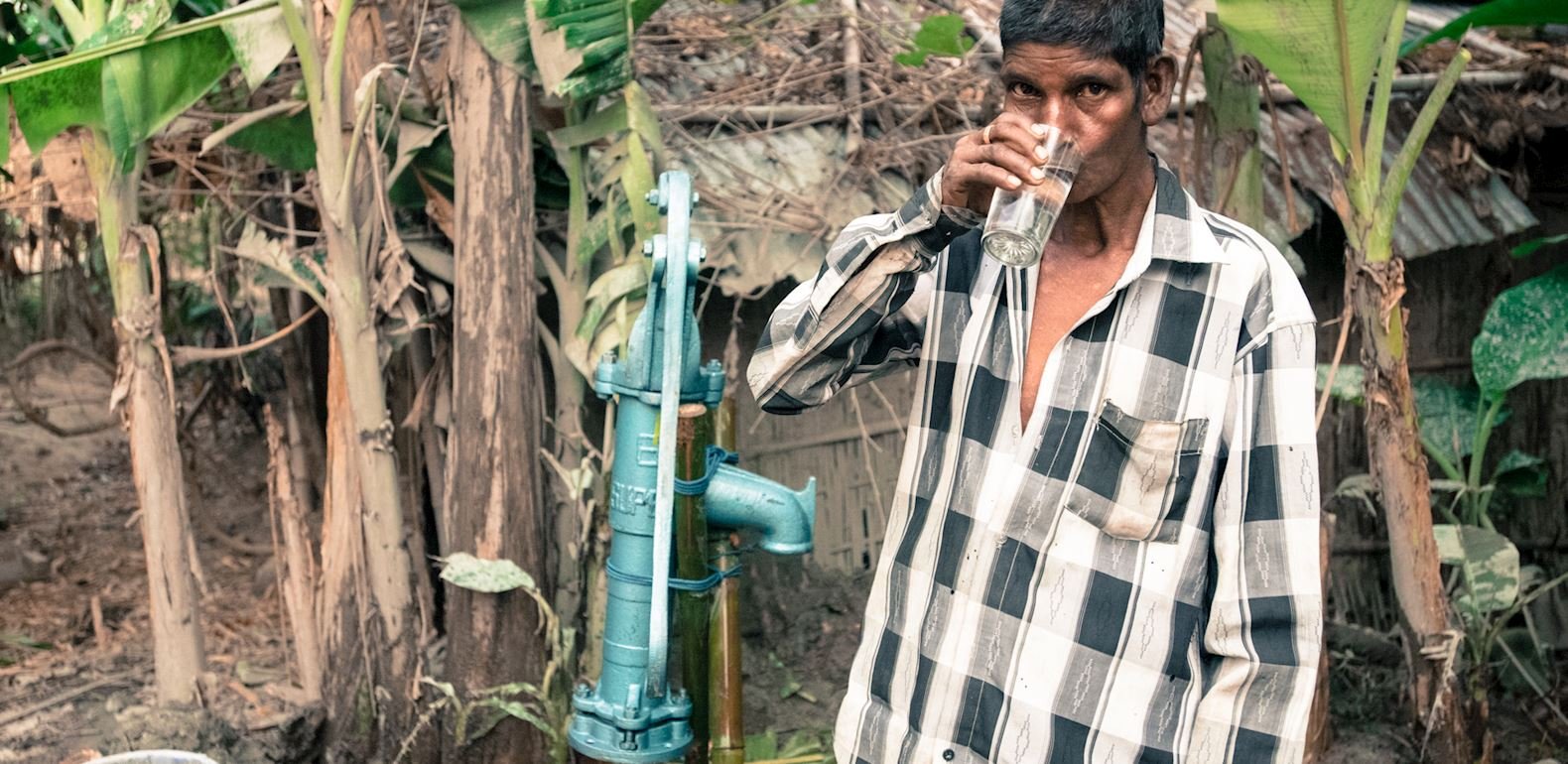
Particularly, In Rohingya camps, MHI has installed safe latrines and water supply systems to ensure the hygiene of the refugees.
MH has accomplished all of this through sustainable public-private and community partnerships so that the water infrastructure can be run, repaired and replaced by community on self-sustainable basis. MH has also pursued innovative and environment-friendly water conservation projects, including rainwater harvesting and community-based gravity water supply schemes.
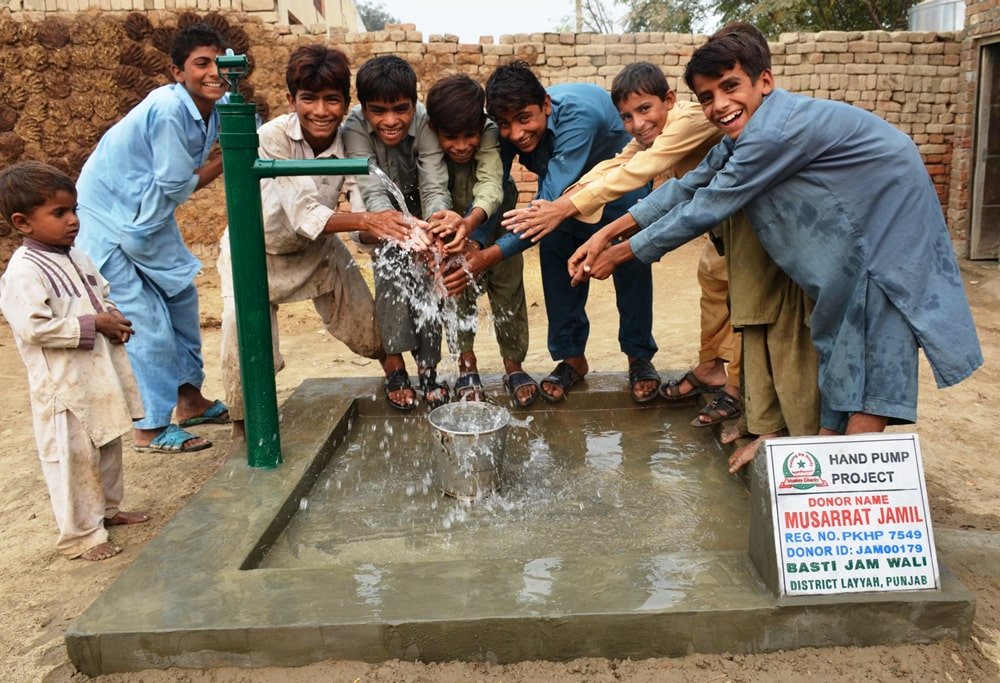
Muslim hands Bangladesh has renewed focus on WASH in schools, which includes providing WASH facilities in schools, providing girls with menstrual hygiene, making WASH facilities accessible to Persons with Disabilities(PWDs). Lastly, MH has implemented community awareness campaigns for inducing behavioral change to promote hygienic practices at the community level.
Emergency Response
Since the flood disaster of 1998, whenever a natural disaster occurs in the country, Muslim Hands Bangladesh has taken part in emergency responses and distributed relief materials in the form of foods, pure water, medicine, clothes, etc.
Muslim Hands has also worked for Rohingya refugees with our partners on the ground to respond to the emergency needs of Rohiingya refugees, in Cox’s Bazar by providing emergency aid, shelter and medicine. MH Bangladesh has worked with needs of Rohingya since 2012 and in the years since, it has even sent resources to assist them in border areas of Bangladesh such as construction of numerous barrack homes for Rohingya families in Sittwe, Myanmar, and more. MH has also implemented Food Distributions to Rohingya families in Sittwe.
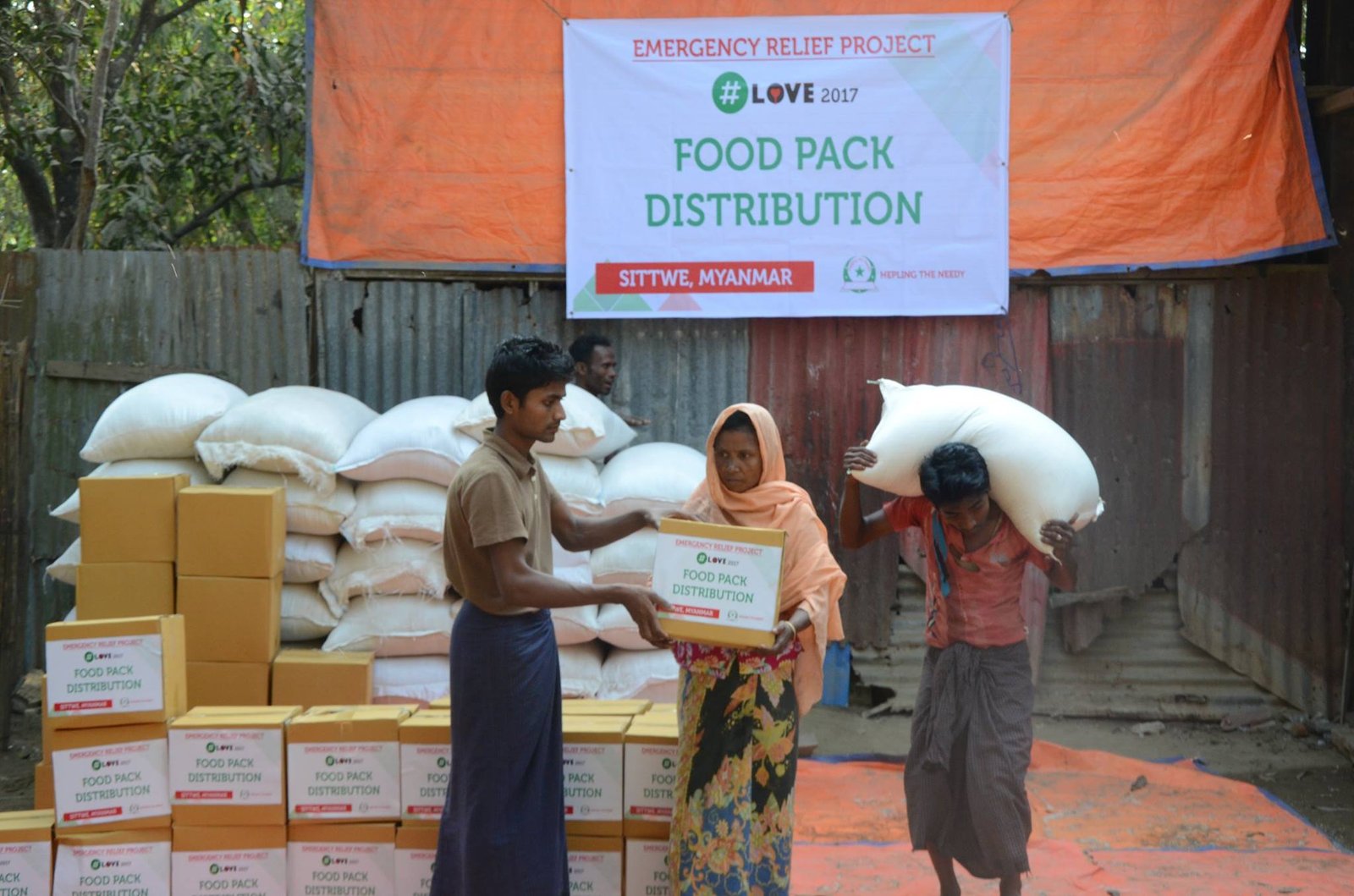
Every year Muslim Hands Bangladesh distributes relief goods by way of blankets and other warm clothes to the severely cold-hit poor people of Bangladesh, particularly in the village area and poor floating / roaming people of slum areas in Cities and Towns. MHI distributed rice, potato, clothes as relief goods in every natural calamity and constructed 450 new houses.
Livelihoods
Muslim Hands’ Livelihood Projects are designed to empower individuals into training and work, giving them an independent, sustainable, and long-term income. In this way, when there is a breadwinner in the family, children can afford school fees, and families can afford medical expenses.
So far, MHI has distributed 417 Rickshaws at Sylhet, Habiganj, Chuadanga, Sirajgonj, and Mymensingh districts. Furthermore, MHI provided the poor people with small shops for running a business.
Muslim Hands vocational training centers focus on providing youth with in-demand market skills that have practical impact on their lives. Furthermore, MHB provides technical toolkit packages to recent graduates of technical training institutes and support their integration into the job — business/market.
Health
Muslim Hands believes that access to adequate healthcare is a human right and something no one should left deprived of. However, the sad reality is that affordable and effective health care is an elusive hope in many parts of the country. MHI aims to provide medical help by establishing Dispensary Clinic, a temporary medical camp for the poor, sick, and disabled people.
Every year MHB organizes free medical camps and distributes free medicine among the underprivileged people. 400 patients got Cataract surgery and 32 people with disabilities received Wheelchairs from MHB. MHB plans to review performance and strengthen MHI RCPD clinics (rehabilitation centers for physically disabled) and increase inclusive development initiatives for persons with disabilities.
MH is currently planning to strengthen their “Motherkind” maternal health program and increase the number of clinics from 6. Moreover, MH will train community midwives for skilled birth attendance. Strengthen our basic health units (BHU’s) and increase outreach by training lady health workers.
MHB will also explore and initiate a pilot project on diagnostic laboratories to help reduce inequalities in health for vulnerable people.
Cross cutting priorities
The following cross cutting priorities are incorporated into all MHB programs:
- Gender Equality
- Address gender-discriminatory practices
- Mainstream gender analysis in program design and delivery
- Achieve gender parity in internal staffing and capacity development
- Engage with men and boys to change the perception of gender discrimination
- Environment and Climate Change
- Strengthen community Programs to avert effects of climatic change
- Enhance risk-informed programming, including campaigns, advocacy for climate change

